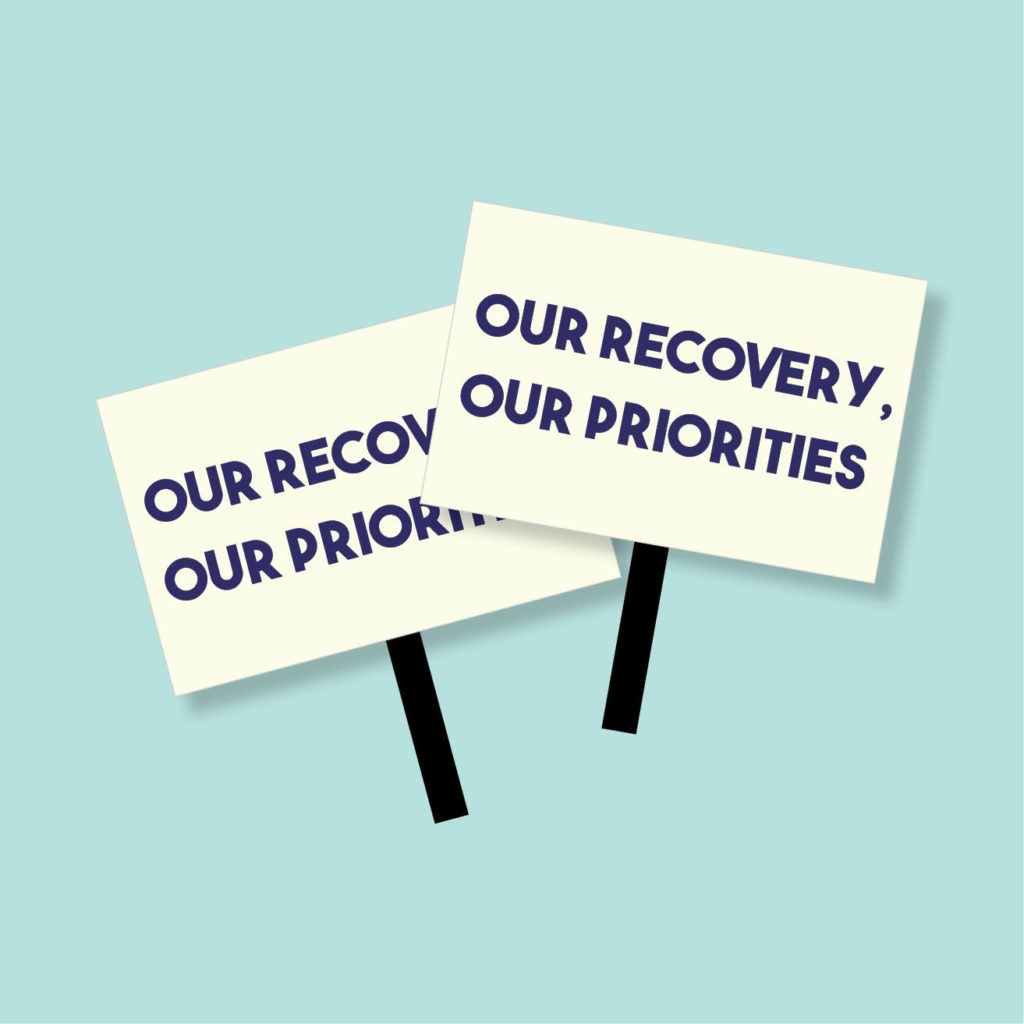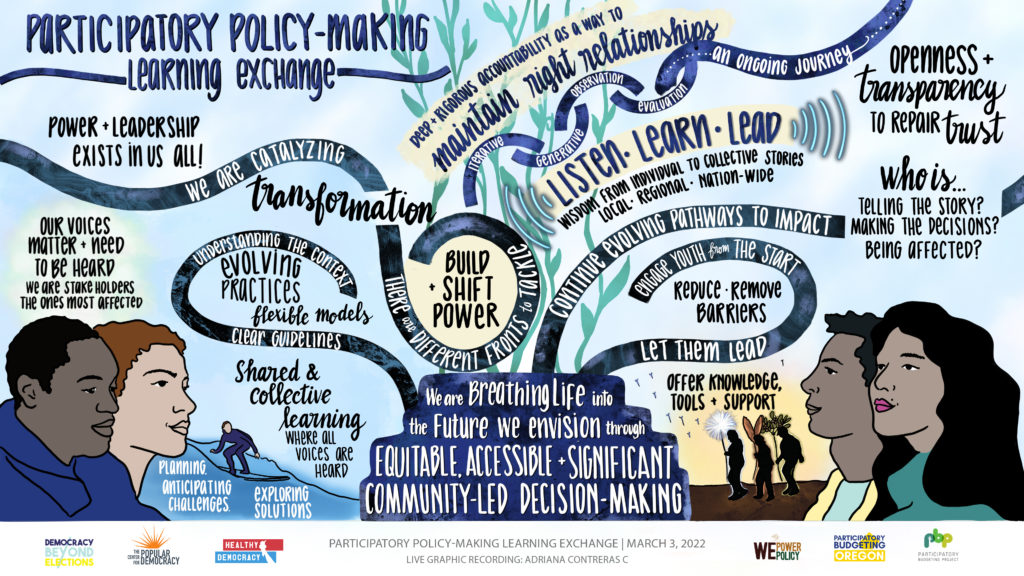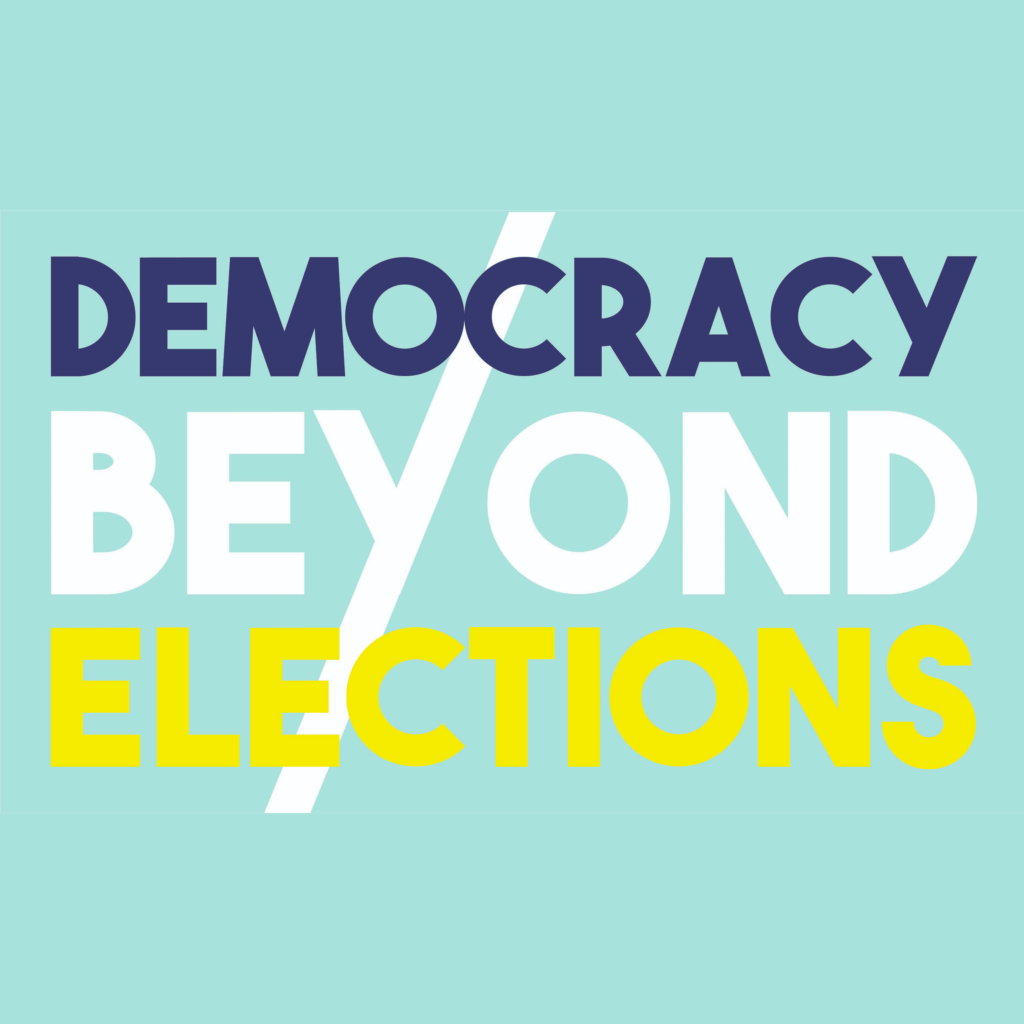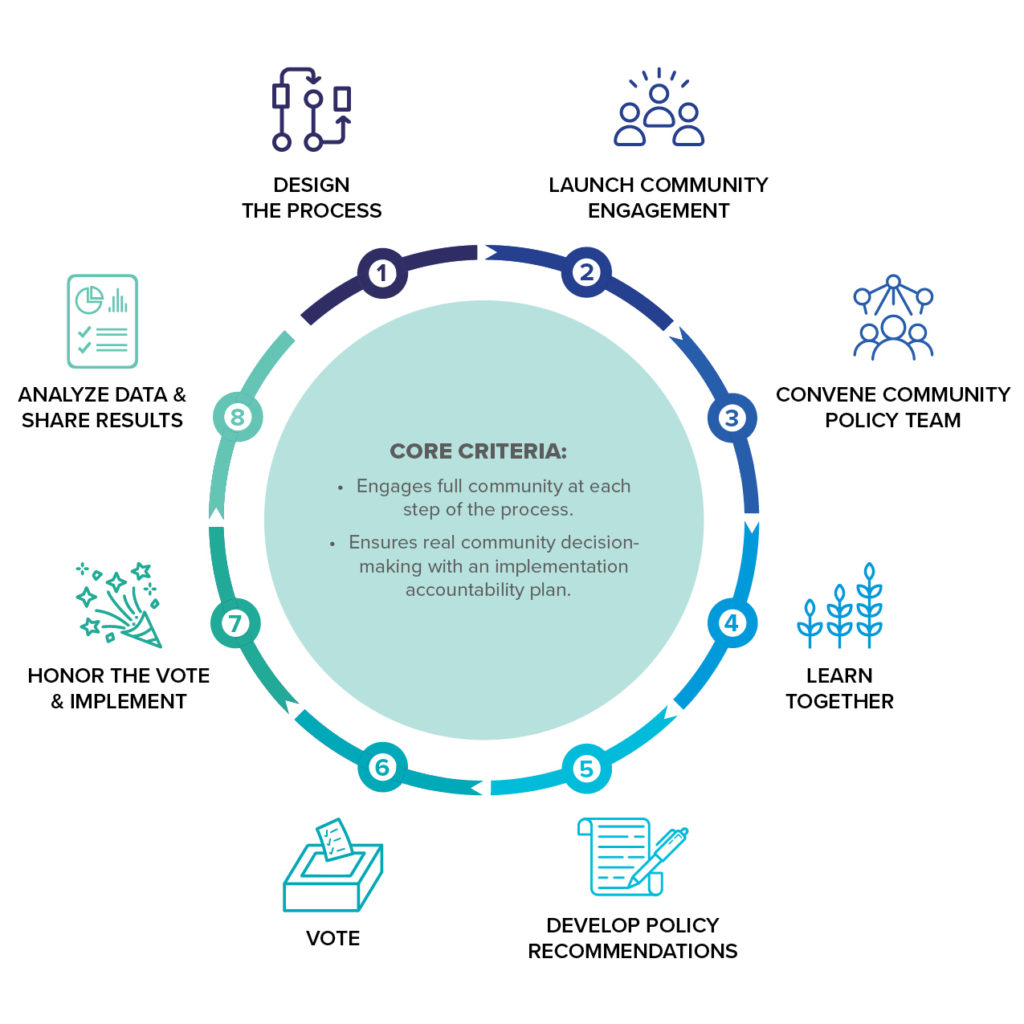Participatory Policy-making
This toolkit provides an overview of participatory democracy practices focused on policy-making, shares the results of a participatory policy-making (PPM) process focused on safety in four co-located Brooklyn schools, and offers guidance for organizers, activists, and advocates to work with elected representatives to bring PPM to their communities.
We believe that participatory democracy practices are essential pathways to co-governance: the sharing of power by a governing entity with community members or community organizations.
See other Resources
A Community-led Recovery: ARPA Funds in Central Falls, RI
A group started VOCES CON PODER in Central Falls, RI, to use participatory democracy practices to allocate ARPA
A Community-led Recovery: ARPA Funds in Oregon
Youth Voice Youth Vote PB (YV2 PB) was launched in Oregon in 2022 to use participatory democracy practices
Participatory Policy-Making Learning Exchange
This graphic presents a vision for participatory policy-making rooted in equity, accessibility, and significance. It's the result of
Tools for Virtual Engagement
This brief offers considerations for making virtual decision-making processes accessible and equitable throughout and beyond the COVID-19 era.
A Community-led Recovery: How to Use Participatory Budgeting for American Rescue Plan Funding
This booklet provides information on how your community can and must have a say in American Rescue Plan
Democracy Beyond Elections
This one-pager gives an overview of what Democracy Beyond Elections (DBE) is providing goals and solutions to deepen
Participatory Policy-making
This one-pager gives an overview of what participatory policy-making (PPM) is, why it is a useful tool, the
“Where We Live NYC:” The NYC Fair Housing Assessment
In 2018, the New York City Department of Housing Preservation and Development (HPD) and the New York City
Community-Driven Zoning and Development in Chicago’s 35th Ward
When Alderman Carlos Ramirez-Rosa took office in 2015, he initiated a six-month long process to restructure the way
Washington CAN’s Good Cause Eviction Policy
Washington Community Action Network (Washington CAN) is the largest member-based, grassroots community organization in the state of Washington
Sign up for updates
Sign on as an organization
